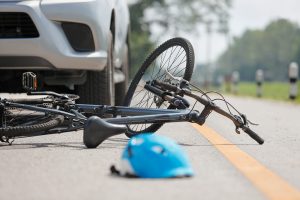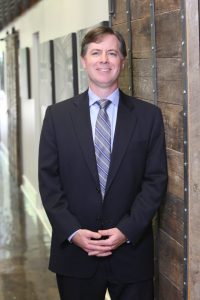Any attorney representing individuals injured in accidents understands that an injured person, or the plaintiff rather, has the burden of proving the essential elements of their claim. One of the essential elements of any personal injury claim is causation. There are two components to causation. First, the plaintiff is required to establish that the defendant’s conduct caused the event in question and secondly, the plaintiff is required to establish that the subject event caused the claimed injuries. However, what does it mean to establish sufficient proof of “causation” in a personal injury case.
Almost every attorney assessing injury causation will approach the analysis from the standpoint that testimony is needed by a qualified healthcare provider that the injuries were likely caused, or probably caused, by the underlying event. Attorneys often use a phrase “within a reasonable degree of medical probability or certainty” to describe the injury causation standard. Another way to view this standard or burden of proof is to view “probability” as meaning greater than 50%.
Attorneys representing injured victims become uneasy and concerned if the healthcare provider testifies that the injuries were “possibly” caused by the event because that seems to suggest uncertainty or speculation. However, testimony related to the injuries or death being possibly caused by an underlying event is not necessarily dispositive. It really depends on the facts, the claims and the overall evidence and testimony. The purpose of this article is to emphasize that all attorneys representing individuals in personal injury cases should assess causation further if, and when, a healthcare provider is not able to testify that the injuries were likely or probably caused by the underlying event. Don’t simply give up and think that you cannot satisfy the causation burden of proof.
Recently, our firm had the pleasure of representing an elderly gentleman (hereinafter “plaintiff”) who sustained severe orthopedic injuries when a dog caused him to crash his bike. In this case, it was undeniable that orthopedic injuries and surgeries were caused by the event. However, after the incident, his cognitive functioning began to decline. A few years after the incident, the plaintiff passed away. The lawsuit was amended to add a wrongful death count. As to the wrongful death claim, the issue of whether his death was caused by the underlying event became front and center at the summary judgment stage of the case.
 The evidence established that prior to the bike crash, the plaintiff was active, athletic, and independent in most all his daily activities. He drove himself, was doing his own shopping, bathed, dressed, and cared for himself independently. Before the fateful bike crash, he had not been diagnosed with dementia, despite having a minor degree of memory loss which was well controlled with medication. However, after the bike crash, he gradually deteriorated.
The evidence established that prior to the bike crash, the plaintiff was active, athletic, and independent in most all his daily activities. He drove himself, was doing his own shopping, bathed, dressed, and cared for himself independently. Before the fateful bike crash, he had not been diagnosed with dementia, despite having a minor degree of memory loss which was well controlled with medication. However, after the bike crash, he gradually deteriorated.
Naturally, the defendant argued that there was no testimony that the bicycle crash caused the plaintiff’s death. While there were a lot of expert opinions in the case, the plaintiff’s treating physician testified that “patients who have traumatic injuries, it can decrease their ability as far as cognition, and if they have some underlying mild dementia, it can occasionally markedly exacerbate dementia.” Additionally, the treating physician expounded on his opinions by stating:
Q: Okay. Is it your opinion that his— the bicycle crash caused him to suffer hip pain for a period of about 3 years?
A. Yes.
Q. It’s your opinion that the bicycle crash caused him to suffer cognitive decline, correct?
A. Correct.
Q. Is it your opinion the bicycle crash caused him to have a decline in his overall health?
A. Yes.
Q. Taking all those things together, the cognitive decline, the pain and the decline of his overall health, it is your opinion those things contributed to his death?
A. Yes.
Before passing away, plaintiff was also evaluated by a neuropsychologist regarding his dementia and/or cognitive decline. In pertinent part, the neuropsychologist testified:
Q. Doctor, as a clinical neuropsychologist, do you have an opinion as to whether there is a cause and effect relationship between the January 10th bicycle crash and his subsequent accelerated decline of his cognitive functioning?
A. I think that based on he and his wife’s reports of his functioning prior, and then based on his objective testing of where he was at when I saw him, it appeared that he had declined significantly. Dementia in general is expected to decline over time, but the concussion and the resultant surgery after the bicycle crash could be exacerbating factors that helps accelerate that decline.
Q. In your opinion as a clinical neurosycologist, the bicycle crash and the resultant orthopedic surgery more likely than not exacerbated his cognitive dysfunction?
A. I think it’s a possibility, yes.
Q. Is it a possibility or is it a probability, is what I’m getting at, Doctor?
A. It’s hard for me to say that without having objective data from before the crash. I can say that at the time he had a cognitive dysfunction. I can speculate that it was related to the concussion and the surgery, but I can’t say that with any level of, you know, full confidence.
Q. And I’m not asking for full confidence, Doctor, I’m asking for more likely than not, 51%?
A. I would say yes, it’s probably that— that could have had an impact.
Q. So it’s more likely than not that the bicycle crash and the surgery increased the cognitive dysfunction?
A. Yeah. I’d say so.
The defendant argued that our plaintiff had not presented substantial evidence from which a jury could reasonably infer that the death was “caused” by the underlying bike incident. We countered and cited Alabama case law on the subject. The Alabama Supreme Court has rejected similar arguments regarding proximate cause in wrongful death claims which were based on similar expert testimony. In Tidwell v. Upjohn Co., 626 So. 2d 1297 (Ala. 1993), Tidwell brought negligence and product liability claims against a pharmaceutical company for failing to warn physicians of the risk of suicide associated with a medication after her spouse died by suicide while taking the medication. Tidwell, 626 So. 2d at 1298-99. The plaintiff introduced testimony of a psychiatrist and a pharmacist to prove that ingesting an increased dosage of the medication caused her spouse to commit suicide. See id. The psychiatrist opined that the medication was a “possible contributing cause” of the descendant’s suicide, and the pharmacist testified that the medication was a “significant contributing event to the suicide.” Tidwell, 626 So. 2d at 1302. The Alabama Supreme Court reversed the trial court’s order granting summary judgment, holding that the testimony from the psychiatrist and pharmacist constituted “substantial evidence of probable causation.” Id. at 1303.
The Alabama Supreme Court also addressed a factually similar scenario in Silva v. Hodge, 583 So. 2d 231, 232 (Ala. 1991). In Silva, the plaintiff suffered lower back and pelvic injuries at work, and five years later suffered a massive stroke. The plaintiff alleged the stroke was caused by her workplace injury. In support of this claim, the plaintiff offered testimony of her treating physician, who opined that:
We know stroke and heart disease are degenerative disease of the artery. This usually comes when you’re sixty-five or sixty [sic] years old. But in this patient, I believe because of her inactivity and because of gaining weight because she cannot move, the degenerative process was hastened. That’s all the connection I can give you.
Silva, 583 So. 2d at 233
The defendant in Silva argued on appeal that the expert’s testimony was speculative and thus inadmissible. The Alabama Supreme Court rejected this argument, holding that the testimony was not only admissible, but it was also sufficient evidence that the accident at [defendant’s property] caused the stroke.” Id. at 234. Moreover, the Court reached this holding despite that “there exist other plausible causes of the stroke.” Id. The Court also noted that the treating physician had been treating the plaintiff for some time and clearly stated that “he believed the accident hastened the degenerative process which ultimately caused the stroke.” Id. at 234.
In summary, both Silva and Tidwell stand for the legal proposition that summary judgment should be denied if substantial evidence exists that the underlying event was a “significant contributing factor” to the death and/or injury. In our specific case, the trial court denied the defendant’s motion for summary judgment as to causation on the wrongful death claim. As the case proceeded to trial, a confidential settlement was reached by the involved parties.
 Alabama Injury Law Blog
Alabama Injury Law Blog


